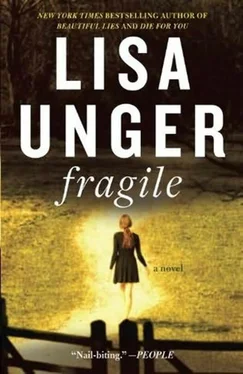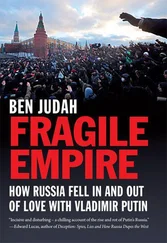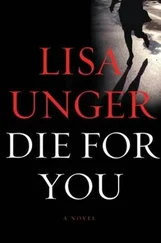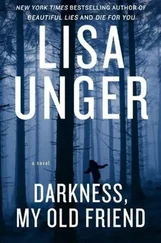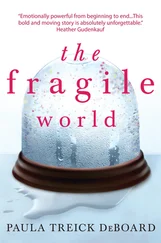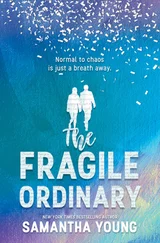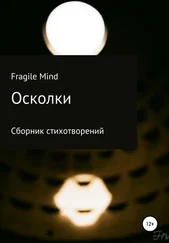Even as he said the words, it didn’t seem quite real. It seemed like something that had happened so long ago the details had gone blurry. The solid things around him were disappearing; the dock beneath him, Henry Ivy standing in front of him. He was starting to see bursts of white light.
Ivy moved toward him, saying something, reaching out to help him. But Jones didn’t hear. He was thinking about Charlene, thinking that if Marshall was going to hide her on this property, it might be on the boat. It was isolated from the house; any sounds would be carried out and over the water. He wondered if, like always, he had too little to give and was too late to give it.
Jones managed to stumble off the dock and onto the boat. It pitched with his weight, and he almost lost his balance. Don’t fall , he told himself. If you fall now, you won’t be getting back up . He heard Ivy calling after him, the sirens growing louder, but Jones just walked to the narrow stairwell that led to the cabin and, with effort, moved down.
And there she was. For a second he thought he was looking at another corpse, someone broken and left for dead. She was still and pale, bound at the wrists and ankles, her head tilted to the side. A piece of gray electrical tape covered her mouth. He felt that terrible sense of loss that he’d felt in the park that night, that familiar helpless rage at a thing that could not be changed. But then she opened her eyes and saw him there. He’d expected her to writhe and scream at the sight of him. But instead she just closed her eyes again and started to cry.
He moved to her quickly, unbound her ankles, and took the tape off her mouth. When he got to her wrists, she wrapped her arms around his neck and sobbed. He found himself sobbing, too. Not just for Charlene, or for the pain in his chest that was threatening to shut him down, but finally for Sarah and for the part of himself that had died with her.
“Marshall, tell me what happened.” Maggie knelt beside the boy.
She took off her coat and wrapped it around him. He was pale and shivering. She kept glancing back at the trees into which she’d watched Henry disappear to follow the sound of Jones’s voice.
“Crosby,” she’d heard him boom. But she didn’t hear the rest.
Marshall grabbed her hand and held on tight. She fought the urge to pull away. Something about his desperate grasp, the crazed look in his eyes, frightened and drained her, as though he could suck the very life from her. She tried to draw back a little, but his grip on her arm was too strong.
“He was right,” Marshall said. He pulled her closer. “He was right about everything.”
The way he said it, a growl through gritted teeth, made her shiver.
“Who?”
“My father.”
“Marshall, no.”
But in the next moment, Henry was carrying Charlene from the trees, a slim, bruised, and filthy rag doll in his arms, and Jones was trailing behind them. Maggie could see the unnatural gray-white to Jones’s skin. She used all her strength to break from Marshall’s grasp and got up and ran to her husband.
“I’m sorry,” he said when she reached him. In her arms, he lost the last bit of physical fight he had in him, and his weight brought them both to the ground, hard.
“I’m so sorry,” he said, again.
Then, dreamlike, the Crosby woods were filled with light and people she knew, people she’d known forever, all in the various costumes of their adulthood-paramedics and police officers-like some kind of somber masquerade party.
“Is she alive?” she asked Henry, who handed Charlene to a paramedic and stood looking stunned.
“Yes. Thank God. Yes,” said Henry, coming to his knees beside them. “You saved her, Jones.”
Jones shook his head in protest. “No. I got lucky.”
In the ambulance, Maggie sat beside her husband, holding his hand. He had an oxygen mask on his face; the front of his shirt was soaked with blood. Every breath seemed hard-won. Over and over, she heard her own voice saying, “It’s okay. It’s okay. It’s okay.” She kept a comforting smile frozen on her face. She didn’t want Jones to look at her and see what she was feeling-stone-cold fear.
Out of the back of the ambulance, she watched as the police took Marshall away, his hands cuffed behind him.
“He’s still out here,” she heard Chuck say. “We’ll need more men to find him on this property. We’ve got acres and acres to cover.”
“Did they get Crosby?” Jones asked under the mask.
“Travis? No,” said Maggie.
“The old man is dead,” said Jones.
“We’ll talk about it later. Chuck can handle it for now.”
She braced herself to push Jones back onto the gurney. But he never tried to get up as she’d anticipated, he just nodded and closed his eyes.
“I love you, Jones,” she said. But he didn’t seem to hear her.
By the time they arrived at the hospital, it was already a carnival of news vans and parked police vehicles with lights silently flashing. Maggie watched from the back window of the ambulance as Charlene was lifted out of another vehicle and rushed inside. A comet’s tail of reporters and flashing cameras trailed behind her. She looked impossibly small on the gurney, like the child she really was. Charlene’s eyes swept past Maggie, seeing nothing. The sight filled Maggie with horror for Charlene, for everything she’d been through, for everything ahead of her-not the least of which was the media circus bound to follow one of the most terrible and sensational things to have happened in The Hollows. Maggie watched as Melody ran in from somewhere out of view and took Charlene’s hand. She was surprised to see that Melody was not hysterical, not making a drama in front of the cameras. She was stone-faced and strong. Police officers held back reporters at the doors to the emergency room. And the next thing Maggie knew, she and Jones were in the center of the storm-Jones being pushed into the hospital, she rushing behind, trying to ignore the shouting and the cameras.
What happened? Can you tell us what happened to Charlene Murray? Is she going to be okay? Who are you? What is your relationship to the victim?
Maggie wanted to cover her ears; instead she just kept her eyes on her husband, felt weak with relief when they passed the police line that had formed, and all the chaos and noise faded behind the closed doors.
How did they find out about all of this so fast? she wondered. It was as if they were waiting on the periphery, monitoring police frequencies. Of course. Of course that’s what they were doing .
“You have to wait here. You can’t go any farther.” A young girl-how could anyone that young work in a hospital?-stood in front of her, placed a strong hand on Maggie’s arm.
“That’s my husband,” Maggie said.
“You have to wait here, ma’am. I’m sorry. Someone will come and talk to you.”
And then they were wheeling Jones away, taking him down a long white hallway until he disappeared behind another set of doors. Maggie felt like her knees were going to buckle beneath her. Was this really happening? It couldn’t be happening.
“Mom? What’s going on? Was that-was that Dad?”
Maggie turned to see her son, looking pale and afraid. She didn’t even think to ask how he came to be there, she just grabbed him and held on tight. She wanted to tell him that everyone was okay now, that everything was going to be all right. But she didn’t know that, she didn’t know that at all.
Maggie gathered her mother’s things from the dresser. Three nightgowns, several pairs of panties, and some bras-all newish things for which Maggie had recently taken her shopping. She took five of the knit shirts her mother favored, each with its own little wisecrack-IF IT’S NOT ONE THING, IT’S YOUR MOTHER; IF YOU CAN READ THIS, YOU’RE STANDING TOO CLOSE TO ME; NO DRAMA MAMA-and packed them into the waiting suitcase. The day Elizabeth had sworn would never come was finally here; she was moving in, at least for a while, with her daughter, son-in-law, and tattooed grandson.
Читать дальше
